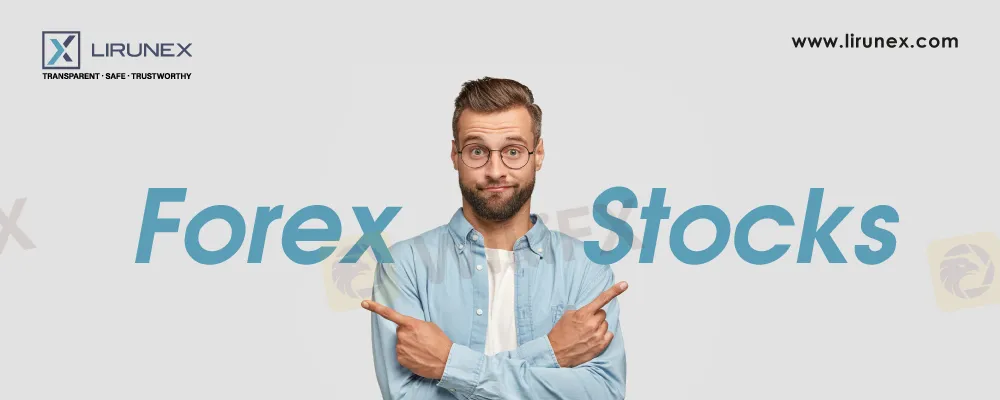Forex vs. Stocks: Which Market Is Right for You?
Zusammenfassung:In this article, we will explore the world of forex and stocks to discover the traits and help you make an informed decision.

Forex vs. Stocks: Which Market Is Right for You?
For today's investors and traders, faced with an array of investment opportunities, the choice between forex (foreign exchange) and stocks is a common dilemma. Each market has unique characteristics and appeals, making it crucial to understand their differences and determine which suits your financial goals and risk tolerance. In this article, we will explore the world of forex and stocks to discover the traits and help you make an informed decision.
Understanding Forex and Stocks
Forex also known as Foreign Exchange Market, is the largest and most liquid financial market globally - trading over $6 trillion daily. It operates 24 hours a day, five days a week, focusing on currency pairs like EUR/USD, GBP/USD, and USD/JPY. Forex attracts traders with its high liquidity, round-the-clock availability, and leverage options.
Stocks: Stock trading involves buying shares in individual companies. Stocks are traded on various stock exchanges, such as the NYSE and NASDAQ. Stocks often represent well-established firms like Microsoft, Apple, and Amazon. Despite economic challenges, many blue-chip stocks have a history of consistent dividend payments.
Each market offers distinct advantages and disadvantages, which align differently with various trader types. Now, let's get into the key differences between forex and stocks.
5 Major Differences Between Forex and Stocks
1. Market Trading Hours
Forex: The forex market operates 24/5, allowing trading in different countries and time zones. This flexibility suits traders looking for extended trading hours and quick reactions to global news.
Stocks: Stock markets have fixed trading hours determined by regions and exchanges. These markets operate on a specific daily schedule, typically from 9:30 AM to 4:00 PM in the United States, varying worldwide.
2. Volume of Assets
Forex: The forex market's daily trading volume exceeds $6 trillion, dwarfing the stock market's average of about $200 billion daily. High liquidity enables quick order execution and entry/exit at preferred prices.
Stocks: Stock trading volume varies by company and sector. While large-cap stocks tend to have higher liquidity, small-cap stocks may be less liquid and more susceptible to price fluctuations.
3. Volatility and Liquidity
Forex: Forex markets can be highly volatile, with opportunities for profit during price fluctuations. Traders often seek high liquidity to execute rapid buy/sell orders without significant price impact.
Stocks: Stock market volatility varies by company and sector. Some traders prefer the stability of blue-chip stocks, which may not suit short-term traders seeking price swings.
4. Trading Strategies
Forex: The forex market offers a range of resources and short-term trading strategies, including day trading, swing trading, and scalping.
Stocks: Stock traders often lean towards long-term positions due to the stability of blue-chip stocks. Specialized short-term stock trading strategies are less common.
5. Margin and Leverage
Forex: Forex trading typically involves higher leverage, allowing traders to control huge positions with less capital. Leverage magnifies both gains and losses, necessitating careful risk management.
Stocks: Leverage in stock trading is generally lower, especially for physical stock ownership. Some leveraged products, like CFDs, offer opportunities to trade stocks with margin.
Profitability in Forex vs. Stocks
In the forex vs. stocks debate, it's challenging to declare one market more profitable than the other. Both offer unique advantages:
Forex: Forex is excellent for short-term traders due to its high volatility and liquidity. Profiting from rapid price movements is possible. However, the use of leverage can increase risk.
Stocks: Long-term investors can achieve profits by selecting the right stocks. Patiently holding positions, diversifying, and employing various strategies can lead to substantial gains.
Conclusion
Your decision should align with your financial objectives and readiness to commit time and effort to succeed in your chosen market. Remember, both markets require continuous education and diligent risk management. To explore forex trading, consider trusted brokers like Lirunex, which offers user-friendly platforms and competitive trading conditions. Whether you choose forex, stocks, or a combination of both, your profitability depends on your knowledge, strategy, and discipline.
WikiFX-Broker
Aktuelle Nachrichten
„Ich hoffe einfach, dass es nach Trumps Amtszeit wieder normal wird: Wie Strafzölle diesem Unternehmer schaden
Wechselkursberechnung


